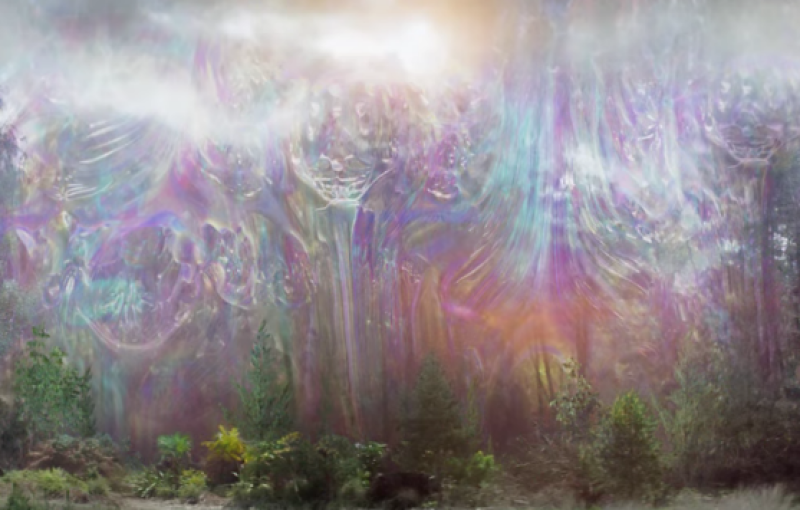
The 8 Best Hard Science Movies of the Past 25 Years
by Mandy Morgan April 28, 2025There’s something magical about a movie that doesn’t just entertain but also respects science. While Hollywood is often content to bend the laws of physics or biology for drama, a few standout films from the past 25 years have dared to dig into real scientific concepts—and still left us on the edge of our seats. Here are eight of the best hard science movies released since 2000, where realism meets storytelling and the science actually matters.
The Martian (2015)
Directed by Ridley Scott | Based on the novel by Andy Weir
When a dust storm forces a NASA crew to abandon their Mars mission, astronaut Mark Watney (Matt Damon) is left behind—presumed dead. What follows is a masterclass in problem-solving and scientific realism. From growing potatoes in Martian soil to modifying a rover for long-distance travel, The Martian celebrates engineering, botany, and physics in a way few blockbusters dare. NASA even consulted on the film, and the result is an exhilarating blend of science, wit, and survival instinct.
Interstellar (2014)
Directed by Christopher Nolan | Scientific advisor: Kip Thorne
Critics may argue about the emotional pacing, but there’s no denying Interstellar‘s commitment to science. Astrophysicist Kip Thorne worked closely with the filmmakers to get the black hole (Gargantua) right—including gravitational lensing so accurate it spawned academic papers. The time dilation effects near a massive gravity source? Real science. This is theoretical physics dressed up with gorgeous visuals and a haunting Hans Zimmer score.
Arrival (2016)
Directed by Denis Villeneuve | Based on a story by Ted Chiang
What if the biggest challenge in encountering aliens wasn’t combat—but communication? Arrival takes linguistic relativity (the Sapir-Whorf hypothesis) and makes it the central mystery. The film respects the process of discovery and language decryption, emphasizing how science, not weaponry, holds the key to humanity’s future. The time-loop twist isn’t just clever—it’s a metaphorical extension of the film’s central scientific theme.
Primer (2004)
Directed by Shane Carruth
With a $7,000 budget and a script so dense it practically needs a whiteboard, Primer is the ultimate brain-bending time travel film. It’s raw, technical, and absolutely refuses to dumb itself down. The characters talk like engineers, troubleshoot like engineers, and fall apart like only real people tinkering with world-shattering tech could. If you want a movie that takes thermodynamics and causality seriously—Primer is it.
Gravity (2013)
Directed by Alfonso Cuarón | Scientific advisor: Kevin Grazier
While Gravity takes some liberties (like orbital paths and distances), it deserves credit for portraying the dangers of space debris, lack of atmospheric drag, and the utter isolation of low Earth orbit with unnerving realism. Sandra Bullock’s Dr. Ryan Stone isn’t a superhero—just a trained scientist trying to survive with skill and resilience. Bonus points for the near-silent vacuum of space, a rarity in sound-heavy space flicks.
Apollo 10½: A Space Age Childhood (2022)
Directed by Richard Linklater
Blending rotoscope animation with memoir-style narration, this film might seem like a nostalgic trip more than hard science—but it beautifully captures the social, cultural, and scientific reality of the Space Race. It’s a love letter to STEM curiosity, filtered through a kid’s eyes, and one of the most underappreciated “science adjacent” films of recent years.
Moon (2009)
Directed by Duncan Jones
Sam Rockwell plays a solitary worker mining Helium-3 on the Moon—a future energy source often discussed in real-world fusion research. The film is a minimalist marvel, tackling not only lunar realism and AI design but also the ethics of cloning, corporate secrecy, and human identity. Moon gets its science right by imagining a plausible near-future—not a distant fantasy.
Annihilation (2018)
Directed by Alex Garland | Based on the novel by Jeff VanderMeer
Blending biology, psychology, and quantum theory, Annihilation is science fiction with a deep evolutionary core. It’s about mutation, refracted DNA, and the breakdown of the scientific method when facing the unknowable. Its surreal visuals are matched by a commitment to scientific themes—especially the fragility and adaptability of life. It’s also just plain weird in the best way.
Final Thought
Want to add to the list? Drop your favorite hard science film in the comments.
And if you liked this blog, please share it! Your referrals help This Week in Science reach new readers.
Leave a Reply